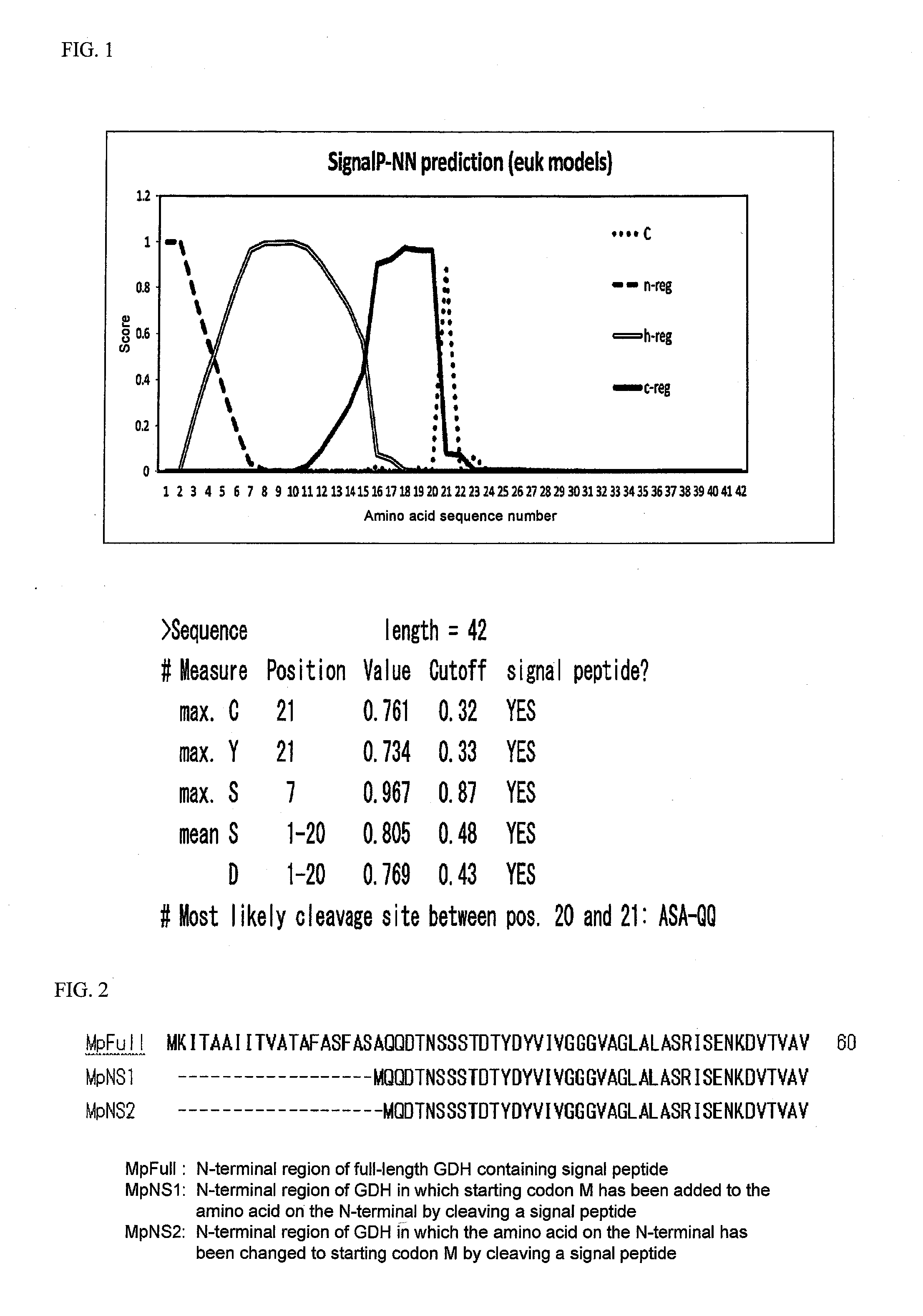Flavin-binding glucose dehydrogenase, method for producing flavin-binding glucose dehydrogenase, and glucose measurement method using thereof
a technology of flavin-binding glucose and glucose dehydrogenase, which is applied in the direction of diaphragms, oxidoreductases, immobilised enzymes, etc., can solve the problems of not having the property of having sufficient low reactivity with respect to any of maltose, d-, and preventing the obtaining of accurate measured values. , to achieve the effect of high substrate specificity, efficient production and adequate heat stability
- Summary
- Abstract
- Description
- Claims
- Application Information
AI Technical Summary
Benefits of technology
Problems solved by technology
Method used
Image
Examples
examples
1. Insertion of Mucor-Derived FAD-GDH into E. coli and Confirmation of GDH Activity
[0144]An FAD-GDH gene suitable for recombination expression by E. coli was designed for the purpose of using Mucor-derived FAD-GDH as a starting material and acquired the FAD-GDH of the present invention by modification thereof. More specifically, a gene sequence was designed based on the gene sequence of Mucor-derived FAD-GDH of SEQ ID NO: 1 and the codon usage frequency thereof was made to be compatible with E. coli, followed by synthesis of the full length of that gene. The sequence of this full-length synthetic DNA is shown in SEQ ID NO: 2.
[0145]Next, an N-terminal region primer (SEQ ID NO: 3) and a C-terminal region primer (SEQ ID NO: 4) were prepared by using this full-length synthetic DNA as template, followed by inserting into the NdeI-BamHI site of pET-22b(+) vector (Novagen) according to the In-Fusion method (Clontech) to construct a recombinant plasmid (pET-22b-MpFull). This pET-22b-MpFull ...
PUM
| Property | Measurement | Unit |
|---|---|---|
| molecular weight | aaaaa | aaaaa |
| concentration | aaaaa | aaaaa |
| reactivity | aaaaa | aaaaa |
Abstract
Description
Claims
Application Information
 Login to View More
Login to View More - R&D
- Intellectual Property
- Life Sciences
- Materials
- Tech Scout
- Unparalleled Data Quality
- Higher Quality Content
- 60% Fewer Hallucinations
Browse by: Latest US Patents, China's latest patents, Technical Efficacy Thesaurus, Application Domain, Technology Topic, Popular Technical Reports.
© 2025 PatSnap. All rights reserved.Legal|Privacy policy|Modern Slavery Act Transparency Statement|Sitemap|About US| Contact US: help@patsnap.com



